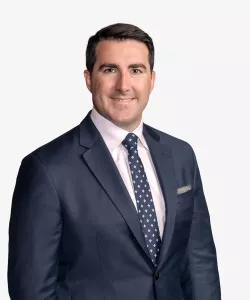Second Circuit Partially Affirms Novartis’ Motion to Dismiss AKS Claims
Headlines that Matter for Companies and Executives in Regulated Industries
Second Circuit Partially Affirms Novartis’ Motion to Dismiss AKS Claims
Last week, the Second Circuit Court of Appeals affirmed the district court’s ruling that dismissed allegations from a whistleblower who claimed that Novartis used “sham” sales representative speaker programs to pay physicians to increase prescriptions of Gilenya, a drug used to treat multiple sclerosis. The Court of Appeals held that a plaintiff states a federal Anti-Kickback Statute (AKS) violation where the plaintiff alleges with the requisite particularity that at least one purpose of the purported scheme was to induce fraudulent conduct.
While the Court of Appeals agreed that the plaintiff in this case did not sufficiently allege that at least one purpose of the alleged remuneration Novartis provided was to induce higher prescriptions, the court nonetheless vacated the district court ruling and remanded the plaintiff’s other claims. Specifically, the court found that the plaintiff adequately pleaded “certain categories of factual allegations that give rise to a strong inference” of AKS violations, including that Novartis allegedly held sham speaker events with no legitimate attendees, excessively compensated physician-speakers for canceled events, and selected and retained speakers to incentivize the writing of prescriptions.
On remand, the district court is instructed to evaluate whether the plaintiff’s allegations as to those categories state all the elements for an AKS violation and to assess the adequacy of the plaintiff’s claims under state and municipal law.
The Second Circuit Court of Appeals’ decision is available here.
Clinics, Laboratory, and Owners Resolve AKS Allegations for $10 Million
Southern California Medical Center (SCMC), R & B Medical Group Inc. (doing business as Universal Diagnostic Laboratories (UDL)), and their owners, Mohammad Rasekhi and Sheila Busheri, have agreed to pay $10 million to resolve allegations that they submitted false claims to Medicare and Medi-Cal, California’s Medicaid program, for paying kickbacks and making self-referrals. The allegations were part of claims brought by former employees of SCMC and UDL under the qui tam or whistleblower provisions of the False Claims Act.
In particular, the government alleged that the defendants violated the AKS by paying kickbacks to (1) marketers to refer Medicare and Medi-Cal beneficiaries to SCMC clinics and (2) third-party clinics in the form of above-market rent payments, complimentary and discounted services to clinic staff, and write-offs of balances owed by patients and clinic staff in exchange for referring Medicare and Medi-Cal beneficiaries to UDL for laboratory tests. The government also alleged that the defendants violated the Stark Act’s prohibition on self-referrals by referring Medicare and Medi-Cal beneficiaries from SCMC clinics to UDL for laboratory tests.
The relators reached a separate settlement with the defendants for $5 million to resolve additional allegations in their qui tam complaint. Neither the United States nor California intervened as to those allegations, and therefore were not party to this separate settlement.
The settlement with the United States and California is available here.
Two Men Charged in NFT Scheme
On December 20, 2024, two California men were charged with defrauding investors of more than $22 million in cryptocurrency through a scheme involving nonfungible tokens (NFTs).
According to the indictment, for three years, Gabriel Hay and Gavin Mayo sponsored and promoted several NFT and other digital asset projects. In doing so, Hay and Mayo allegedly made or caused others to make materially false and misleading statements regarding the digital asset projects before those projects were launched and provided false and misleading plans for projects after their scheduled launch.
However, the two men allegedly abandoned the projects after collecting millions in funds from investors, a type of fraud scheme called a “rug pull.” In a “rug pull,” the creator of an NFT or other digital asset project solicits funds from investors for the project, but abruptly abandons the project while fraudulently retaining investors’ money. Hay and May allegedly used “rug pulls” with multiple digital asset projects and concealed their involvement by falsely identifying others as the owners of those projects.
Hay and Mayo are each charged with one count of conspiracy to commit wire fraud, two counts of wire fraud, and one count of stalking.
The indictment is available here.
DOJ Proposes New Regulations to FARA
On January 2, the US Department of Justice (DOJ) published a Notice of Proposed Rulemaking to update and clarify regulations issued under the Foreign Agents Registration Act (FARA). FARA requires US persons who are acting as agents of foreign principals and engaged in certain specified activities to make periodic public disclosures of their relationship with the foreign principal, as well as activities, receipts, and disbursements in support of those activities.
The DOJ’s proposed rule would make changes to certain exemptions: the commercial exemption, the exemption for persons whose activities do not serve predominantly a foreign interest, and the exemption for persons qualified to practice law. The proposed rule would also update FARA regulations regarding informational materials, including by factoring in that informational materials are now disseminated in many mediums (such as television, radio, and social media platforms).
The Notice of Proposed Rulemaking is available here.
Contacts
- Related Industries
- Related Practices





